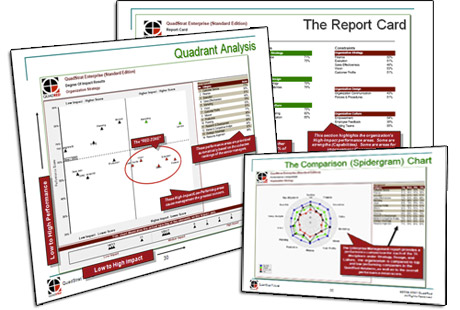


What others are saying...
Thank you so much for providing this tool for us. I really thought the assessment, and even more than that, the feedback it provided was superb.
I really thought that the data it provided about what we're good at and what we need to work at being great at really helped facilitate a great conversation and drove our team towards unity in thought in a number of key areas.
Pastor Zach Montroy
Ginger Creek Community Church
I really thought that the data it provided about what we're good at and what we need to work at being great at really helped facilitate a great conversation and drove our team towards unity in thought in a number of key areas.
Pastor Zach Montroy
Ginger Creek Community Church
©2012 Church Baseline 312-869-9008
 What It Is
What It IsFirst, let me say what this is not – this is not about getting a church or ministry to function as a corporation. It is not to compromise the spiritual growth or focus of the church.
It is, at its most basic, a tool to create dialogue on topics critical to “growing fruit”. It creates an environment to uncover different perspectives, to say “I hadn’t looked at ‘it’ like that before”. It is coming together as a group of individuals and communicating better as a team. It replaces compromise with consensus - and on this point it is a common denominator between all types of organizations regardless of purpose, for at its core if an organization is to function most effectively, its people must function effectively.
During a recent church board meeting where we facilitated the assessment, I was asked about the difference between compromise and consensus. I asked the group to think about a situation where they compromised with another individual – be it a church, business or personal matter. When asked what that felt like, the Senior Pastor was the first to speak up and said “I felt like I lost”. And yes, that is what happens in most cases when we compromise.
Consensus is very different. It starts by applying Dr. Covey’s very first habit (Seven Habits of Very Effective People”) by “seeking first to understand and then be understood”. When we take the time to understand others before us, this starts us on the journey of consensus. The end of which, may be the “other guy” had a perspective we could readily agree with and which perhaps where our perspective would align as well or be more effective as a secondary step. This process of dialogue and discovery is what allows teams to keep their passion, work effectively and minimize dissension.
Lastly, it is important to remember the negative downstream effect of compromise…. Individuals who work halfheartedly, some (few hopefully) who actually hope the initiative fails so the ever so popularly “I told you so” provides them validation. And even when compromise is “successful”, it sets the table for future issues where you may be forced to compromise, since “they” compromised with you last time. Are you beginning to see how compromise simply sets us up for continual compromise? Mediocrity?
Church Baseline is a catalyst for teams coming together to work harmonious and accomplish even greater things for His kingdom.
Functionally, the Church Baseline is an online assessment that measures three major components of the ministry:
1. Strategic issues (over 14 areas are assessed the below is an example)
- Mission and vision
- Congregant service
- Planning
- Resource alignment
- Developing programs
- Delivering programs
- Finance (No money, no mission!)
- Organizational communication
- Roles and responsibilities
- Required resources (technology to support the mission)
- Shared knowledge
- Building teams
- Values
- Adaptability to change
- Training and development
- Orientation
- Empowerment
The reports you receive are:
- Summary Report. Identifies your overall score along with your top strengths and constraints.
- Benchmark Spidergram. Provides you with a visual perspective of your comparative scores to other ministries.
- Quadrant Analysis. Graphical representation of where you see your top opportunities for growth and impact.
- Alignment Analysis. Indicates the degree pastoral leadership, staff and board are on the same page.
- A more focused, motivated and aligned ministry.
- Clarity on the steps needed to reach your targets within a set time frame.
- Objective data for making decisions instead of relying on guesses or gut instinct (ONLY).
- Improved lines of communication across all church groups.

312-217-2080
JR@TheBaselineCompany.com ©2012-2020 Church Baseline 312-217-2080
